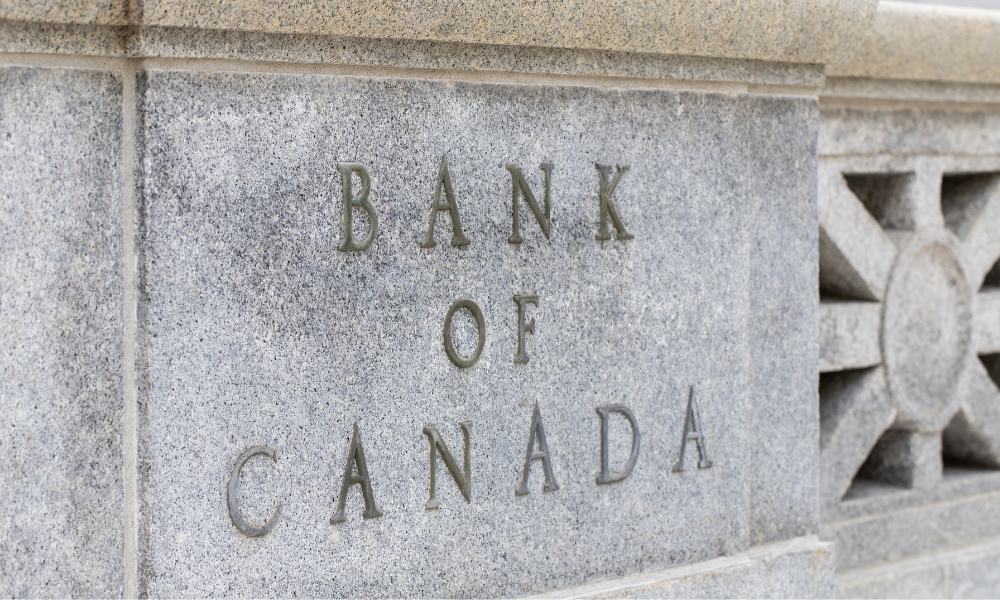Bank announces plans to help net-zero transition but Shift Action group accuses it of funding cause of fossil fuel crisis

BMO declared its ambition to “make a difference” in transitioning to a net-zero world – but swiftly came under fire for its role in financing the primary cause of the climate crisis: fossil fuels.
The Big Six bank yesterday announced its BMO Climate Institute, a new multi-disciplinary organization “harnessing science, analytics powered by innovative technology and industry leading expertise” to unlock solutions to climate change.
It will aim to drive climate adaption innovations and conduct “rapid” prototyping of strategies for managing risk and capturing opportunities in the face of a changing planet.
In a statement, BMO CEO Darryl White acknowledged the “pressing need” to address climate change by reducing greenhouse gas emission to achieve 2050 targets. He added: “Our clients are ready to act but many, especially smaller and medium-size companies, need advice and expertise to inform their response.
“Within this challenge is an opportunity for BMO to make a difference, to help our customers, and to drive long-term value and growth. Our ambition is clear: to be our clients' lead partner in the transition to a net-zero world.
“Our optimism for the future is founded on a conviction that we will solve this problem by applying the same entrepreneurial spirit and innovation we've helped grow for over two centuries. The stakes are high and so is the unprecedented alignment for action we see across governments, business communities and individuals working to make change – and it's going to take all of us working together. You can count on BMO helping to lead the way."
However, Adam Scott, director of Shift Action for Pension Wealth & Planet Health, dismissed the bank’s announcement as “unambitious”. Scott, whose work at Shift aims to bring international climate leadership into Canada’s financial sector, expressed concern that it was simply "another day, another climate commitment" from a Canadian bank that ignores its own role in the problem.
He said: “BMO’s commitment to net-zero emissions by 2050 is another welcome acknowledgement that finance institutions have an obligation to address the climate crisis through their lending and investment decisions.
“Yet, Canada’s banks have so far failed to acknowledge the requirement to immediately and dramatically shift financing away from fossil fuels and into climate solutions.”
Scott highlighted research from BankTrack, which shows that between 2016 and 2019, BMO provided more than USD$82 billion in financing to oil, gas and coal companies and projects, claiming it makes it the 16th largest financier of fossil fuels among private banks in the world.
He also pointed out that an analysis published last month by German finance NGO Urgewald showed that BMO provided nearly USD$3 billion in loans and USD$2.3 billion in underwriting for global coal companies between October 2018 and October 2020.
Furthermore, Scott levelled that BMO is a lead financier of two Canadian fossil fuel pipeline projects that “violate Indigenous rights and that are incompatible with a climate safe future” - Enbridge’s Line 3 tar sands pipeline and TC Energy’s Coastal GasLink fracked gas pipeline.
He said: “BMO is the lead bank on two loans to Enbridge totalling USD$4.05 billion, participated in two other loans to Enbridge, and was the lead underwriter of a bond issuance for Enbridge to build Line 3. It was also the lead agent on a CAD$3 billion loan in September 2019 to TC Energy, which is trying to build the Coastal GasLink fracked gas pipeline to the B.C. coast.”
He added: “A bank that finances the expansion of coal in 2021 demonstrates a fundamental lack of climate literacy. BMO’s claims of “climate ambition” cannot be taken seriously without immediate action to shift away from financing all forms of fossil fuels.
“A bank that is claiming climate leadership while financing fossil fuel pipelines is either greenwashing, or doesn’t understand the urgent action the climate crisis necessitates.”
WP put these comments to BMO but no response was received by time of publishing.



